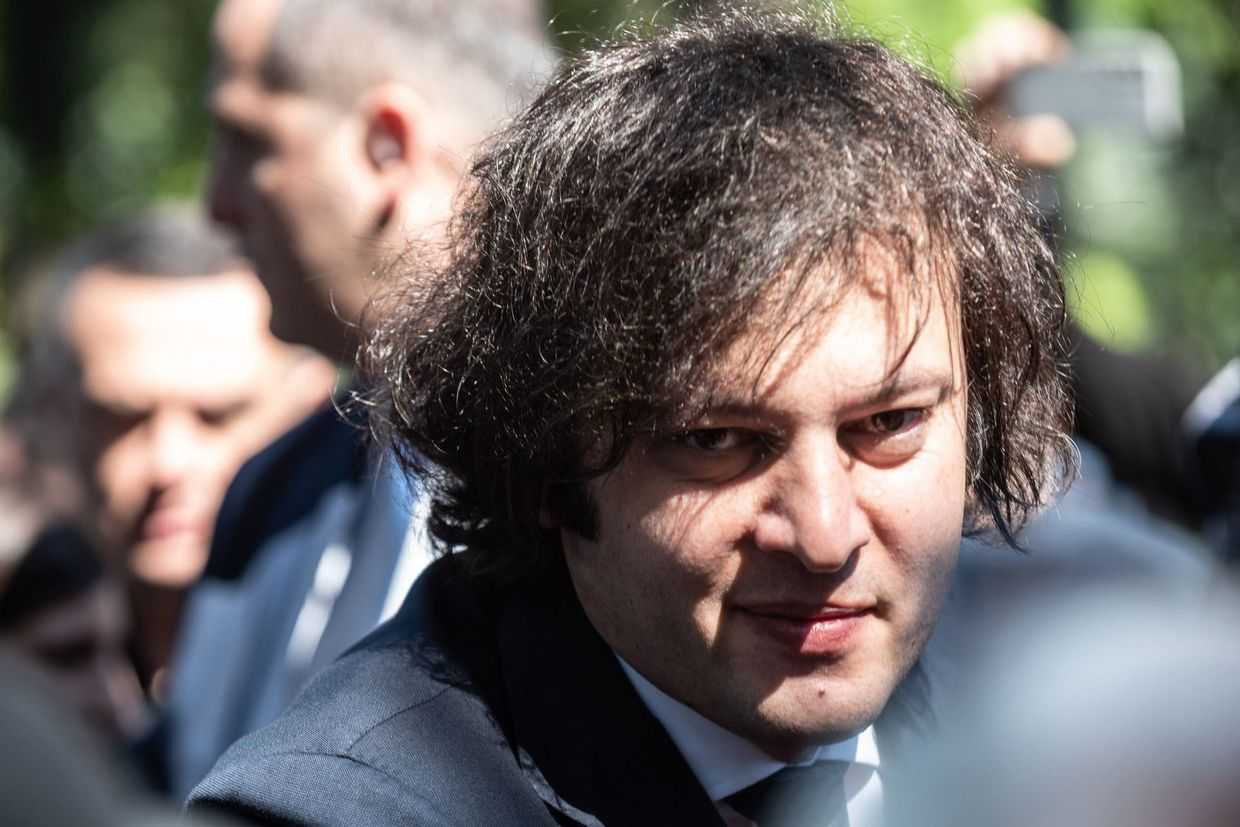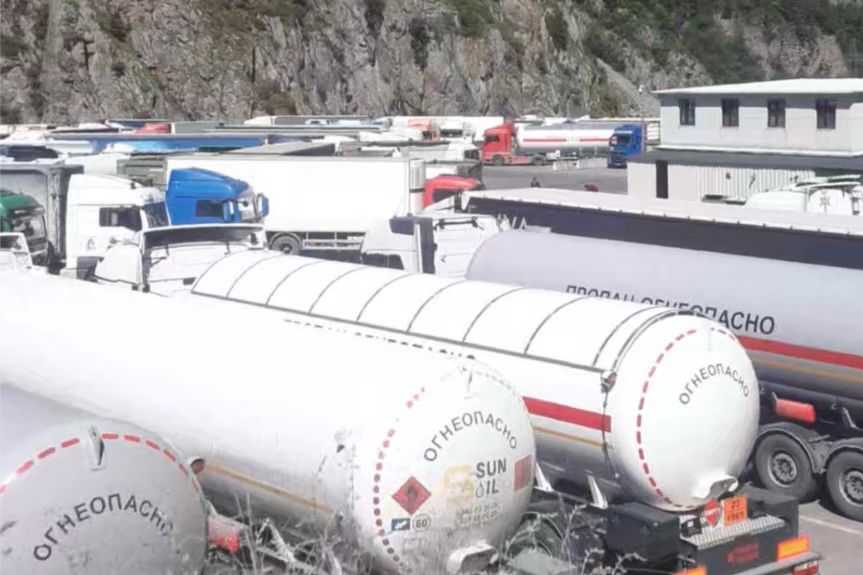
The housing crisis in Tbilisi has come to public attention again, with the demolition of a squatter settlement in Aprika. But that is only the tip of the iceberg, homelessness has affected many in Georgia for decades. Nugzar Chkhaidze, who spends his days in front of the grocery store, and his nights in all over the city, spoke to OC Media about twenty years without a home.
‘I’ve been homeless since 2000, when I lost my flat to the bank. I was working in telecommunications for 21 years, so I had a small office and was sleeping there for seven years. But in 2007, I was fired, and since then I’ve been sleeping in all kinds of arrangements, but mostly, without a roof over my head.’
‘I spent the first six months in Petre-Pavle Cemetery, near the 300 Aragveli Metro Station. I remember early one morning when a woman who worked there was walking in between the graves. She saw me and screamed in horror.’
‘Later, it was she who brought me the mattress, the blanket, and the sheets. I started to do small jobs there — sometimes a grave-digger would call me to help in exchange for food and drink, I was running small errands.’
‘I was also sleeping in the cemetery below Lisi Lake for nine months. Same there, helping in maintenance in exchange for firewood and other small things. I would scare off the marauders who were stealing things from graves, and I drank the wine left after funerals. In the daytime, I went to Lisi Lake and sometimes caught fish, entertaining myself in that way.’
‘In-between sleeping in cemeteries I also lived in monasteries. The keeper of one of the cemeteries introduced me to a priest who gave me some warm clothes and invited me to live in the monastery away from the city, and so I did. The atmosphere was so peaceful, so full of grace. But I was nostalgic for Tbilisi. One day I asked the holy father for the money to go to Tbilisi and come back. I went, and I’ve been here ever since, in this swamp.’
‘I’ve been living here, in front of this store for the last six years. During this time, the store changed maybe five times, and I’ve known each manager, each salesperson, and each security guy — I even drank with them in the backyard. And not just here, I know people in many shops all over the city.’
‘If you enter the store and ask for Babu [Grandpa] — they will tell you something like “he was just here a moment ago”. Sometimes I spend the night in a gazebo tent, sometimes in the underpass. I’ve become senseless, like a robot, sometimes I don’t feel the cold even in the snow. You must endure living. I’m holding onto life as much as I can, there’s nothing else left.’
‘Around four years ago, I went to the Chancellery in Tbilisi and wrote an appeal. I wanted to work, I wanted shelter. They called me and asked me why I left the speciality field empty. How is that relevant to my problems? Nothing came of it.’
‘The Social Services Agency told me to get something, at least some kind of roof over my head, so they could come in to conduct an assessment. I got a small hut made of wood, where they came three times, but again, nothing happened.’
‘When I lost my ID, I went to the House of Justice for a new one and they asked for an address. I said I was homeless, but they couldn’t make one without it so I told them the address of the store where I sit on the steps. This is how I’m registered to this day.’
‘There are always promises, but no commitments. Once someone stopped in front of the store and said, Babu, I have a job for you if you want it. I said I’d do anything, but asked him not to make promises. “If you make a promise, be true to it”, I said. He did, but of course, he never came back.’
‘There are very few things that scare me at this point. I’m not afraid of the curfew either. The police don’t check on me, and even if they did, I know everyone in Saburtalo, Vake and Didube departments. I even help them when there’s a need.’
‘This year I found a dead man, for example. He was sheltering himself in the same abandoned building as me, and I was away for a few days. When I came back, he lay there, his head smashed with a stone. I called the police immediately. Turned out he was dead for five days already. Now when I drink, I always say a few words for him too.’
‘I’m not scared of death. I’ve drunk every single day for years. I’m just extremely tired. If I get the virus, I’ll just die and that will be the end of it. Some time ago, I fell and injured my head. The girls from the store helped me to wash off the blood, then I called an ambulance.’
‘When they brought me in, the security guard said: “Here he comes, to his hotel”. I’m not angry with them, I’ve been to a lot of hospitals in these years. I’ve been to two asylums as well, I have a simple-type schizophrenia diagnosis. There is nothing that hasn’t stomped on my head. Don’t ask me of the hard things, ask me what is good. If you lose hope, you lose yourself.’
‘The best thing is when you wake up after a long time and see the sunrise, and you know that God has given you another day. That is my joy.’
‘Family? No, I can’t go and see them now. My daughter lives in Khashuri with her husband and three grandchildren. I saw them last year. She thinks that I live in a rented place in Tbilisi and work. Sometimes I send her some money, but I never told her I live in the street. If she finds out, she will disown me, I just know it.’
‘I haven’t spoken to my wife in years. She betrayed me when I needed her most, so I don’t even want to look in her direction now. When I lived in a hut, I had a lovely woman with me. She had a flat somewhere on the outskirts of the city, then she sold it and gave the money to her children. Though, I don’t know what has happened to her now. But I can definitely tell you if I had a roof over my head, I’d make a family again. From my experience, I know a lot of people who do have a place, but they can’t return there because they did something wrong.’
‘The most valuable thing is to always remain humane, whatever happens. Know your worth, help others. Sometimes people give me too much food and I give it away. I always have ₾12–₾13 ($3.70–$4) in my pocket which is enough for me to buy what I need. However you live, live for yourself, don’t harm others. Don’t hit people with stones, give them drinking water instead.’
‘New Year’s? I don’t know, I might as well drink right here on this bench. I never know where I’ll be. I don’t see tomorrow.’
This article was prepared with support from the Friedrich-Ebert-Stiftung (FES) Regional Office in the South Caucasus. All opinions expressed are the author’s alone, and do not necessarily reflect the views of FES.






